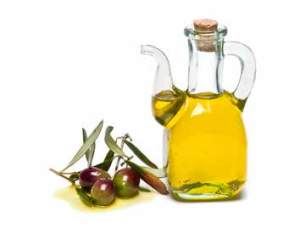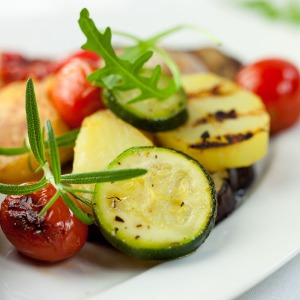 This article originally ran in the Healing Journal newsletter of the Penny George Institute for Health and Healing.
This article originally ran in the Healing Journal newsletter of the Penny George Institute for Health and Healing.
A recent study published in the New England Journal of Medicine earlier this year found that about 30 percent of heart attacks, strokes and deaths from heart attack could be prevented in people if they switch to a Mediterranean style diet. The results of the study were so overwhelmingly clear that the study was stopped early.
“The Mediterranean diet is not a specific diet plan or program,” said Jeannie Paris, RD, LD, integrative nutritionist with the Penny George Institute for Health and Healing. “Rather, it is a collection of eating habits followed by people in the Mediterranean region including Greece, southern Italy and Spain.”
According to Paris, the diet is characterized by abundant plant foods such as fresh fruits and vegetables, whole grains, legumes, nuts, olive oil and a moderate amount of fatty fish or lean poultry. Some people following the eating style may consume a small amount of red wine with meals. The lifestyle in the Mediterranean region also places an emphasis on being physically active and enjoying meals with family and loved ones. The Mediterranean diet is also known for what it does not include: very little or no
red meat, trans fatty acids from partially hydrogenated vegetable oils, foods high in sugar or processed foods.
“Along with reducing the risk for heart attack, stroke or other cardiovascular diseases, the Mediterranean diet may be helpful in reducing the risk of cancer, obesity, type II diabetes and other chronic illnesses,” said Paris. “The premise is that certain types of foods cause inflammation, including foods high in refined sugars or flours and foods that contain trans fatty acids, which are prevalent in the typical Western modern diet.”
Tips for incorporating a Mediterranean-style diet into daily life:
- Emphasize plant proteins. Nuts, small seeds and legumes provide healthy protein and fiber. Experiment with new options, such as chia seeds, which are easily added to Greek yogurt or oatmeal.
- Keep moving. Try to move more throughout the day. It doesn’t need to be an hour at the gym. Short walks spread in five to 10-minute increments throughout the day offer great benefits. Try to aim for 10,000 steps, which you are able to monitor through a pedometer or another tool, such as a Fitbit.
- Make fruits and vegetables the center of your meals. One of the most important things to do to improve your diet is to shift your thinking from making meat the center of a meal to making plants the center of your meals.
- Plan your meals around the fruits and vegetables. Aim for a variety of colors. The goal should be seven to nine servings a day of fruits and vegetables, but even five servings a day would make a big difference in improving most people’s diets.
- Fish and poultry are healthier than red meat. If you include animal proteins in your diet, emphasize fish or poultry over red meat. Red meat is high in saturated fat. Cold-water fish, such as salmon, sardines, mackerel and swordfish, are high in healthy omega-3 fatty acids.
- Use fruit as a dessert. In the Mediterranean diet, whole fruit is often served as a dessert. This is a much healthier option than our typical desserts, which are high in refined
sugars. The key is to shop for fruit in season, when it naturally tastes its best. - If something is good for you, more is not necessarily better. In the study, participants were not limited on the amount of olive oil they could use and were actually instructed to use at least four tablespoons a day. They were told to avoid all commercially made cookies, cakes and pastries and to limit dairy and meat. Olive oil, nuts and avocados are rich sources of monosaturated fat, but do provide a high amount of calories in rather small servings. Olive oil contains about 120 calories per tablespoon. To prevent weight gain, it’s important to limit unhealthier food choices when healthier monounsaturated fat sources are added in one’s diet. For olive oil, Paris recommends pouring extra virgin olive oil into a spritzer bottle and then spray your fish or vegetables before cooking instead of pouring the olive oil directly into the pan.
- Seek expert help. Paris works with clients and offers one-on-one integrative nutrition counseling and metabolism testing.
Olive Oil Salad Dressing
A very easy, flavor-filled dressing that goes with any kind of salad.
1 tablespoon olive oil
1/4 cup seasoned rice vinegar
3 tablespoons seedless raspberry jam (could use no sugar added jam or fresh raspberries in season)
Combine the three ingredients in a blender or shaker and process until smooth. Store in a jar in the refrigerator. Ingredient amounts can be adjusted for desired batch size and also to individual liking.
Delicious over a bed of spinach or mixed greens with strawberries, blueberries and a sprinkle of sliced almonds, walnut pieces or chia seeds.
To make an appointment with Paris, call the LiveWell Fitness Center at Abbott Northwestern Hospital at 612-863-5178 or the Penny George Institute – Unity Hospital at 763-236-5656.


